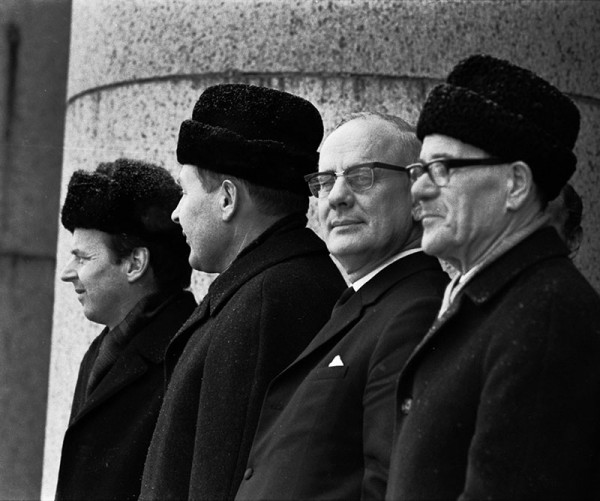Tarvitsevatko säätiöt ylirajaista etujen ajamista? Tai: kuvittele säätiö, jonka varat maasi viranomainen voi takavarikoida koska tahansa. Kansalliset rajat ylittävä edunvalvonta alkaa kuulostaa tarpeelliselta.
Säätiöalan eurooppalaiset järjestöt Dafne ja European Foundation Centre (EFC) lobbaavat Brysselissä EU:n alueelle yleishyödyllisiä yhteismarkkinoita (Single Market for Philanthropy). Asian edistämiseksi on laadittu yhteinen European Philanthropy Manifesto. Järjestöt edustavat yhteensä yli 14 000 eurooppalaista säätiötä. Euroopassa toimii yli 147 000 säätiötä ja lahjoittajaa, jotka antavat vuosittain lähes 60 miljardia euroa yhteiseen hyvään, joten kyse ei ole pikkuasiasta.
Monessa entisen Itä-Euroopan maassa säätiöiden ahdas elintila ja epävarmuus ovat arkea. Kun valtio suhtautuu vihamielisesti säätiöihin kansalaisyhteiskuntaa vahvistavina elementteinä, painetta elintilan saamiseksi yritetään tuoda EU:n kautta. Aloite yhteismarkkinoista parantaisi onnistuessaan ennen kaikkea näiden maiden säätiöiden toimintamahdollisuuksia. Säätiöille suotuisammat maat ovat eläviä malliesimerkkejä ja vivuttavat myönteistä muutosta.
Mitä yhteismarkkinat toisivat meille muille? Säätiöt ovat tärkeä osa demokraattista ja moniarvoista kansalaisyhteiskuntaa. Aktiivinen kansalaisuus, osallistuminen ja toisista välittäminen ovat vastavoimia demokratiaa uhkaaville vakaville haasteille eri puolilla Eurooppaa. Yleishyödyllisyyden tunnistaminen, tunnustaminen ja turvaaminen niin lainsäädännössä, verotuksessa kuin yleisenä arvostuksena edistää yhteiskunnan elinvoimaa kaikkialla, myös Suomessa.
Lue lisää
Philanthropy advocacy
Private resources for public good
The European Philanthropy Manifesto is a call to policy makers in Europe to work towards a Single
Market for Philanthropy which includes a better recognition of philanthropy in EU legislation as
well as at national level; supports cross-border philanthropy across the EU; and decreases today’s
barriers for philanthropy in order to leverage the impact of donors’ and foundations’ spending of
private resources for public good.
Institutional philanthropy in Europe includes more than 147,000 philanthropic organisations with an accumulated annual giving of nearly 60 billion euros. Besides funding and investments, these organisations combine an outstanding set of expertise, deep knowledge and excellent stakeholder networks in the areas of their activities that can be leveraged significantly with the appropriate framework conditions.
What?
Philanthropy and philanthropic organisations are a critical part of our democratic and pluralistic societies. More and more citizens want to do good: They want to help address societal issues, express themselves,
and connect and collaborate with others who share their ideals – ideals that often stem from indignation about injustice, from care for the most vulnerable, from passion to stimulate new trends and ideas, and from a sense of responsibility for preserving valuable nature and culture.
Why?
Motivated by these ideals, many individuals and philanthropic organisations support endeavors from which we all benefit, such as education, health, science, international development, environment, culture and fighting poverty. Philanthropy’s contribution to society is therefore unique. This must be cherished, stimulated and rewarded persistently. Recognition by politicians and by governments is crucial. Especially now, when
citizenship, participation and caring for each other are more important than ever in light of the serious challenges to these democratic ideals in some parts of Europe. Philanthropy, alongside the wider civil society, plays a key role in defending and promoting the values enshrined in Article 2 of the EU Treaty, which include respect for human dignity, human rights and the rule of law.
How?
Philanthropy needs a policy and regulatory environment that allows it to unleash its full potential. Of concern however is evidence indicating that regulation as well as the wider political climate are increasingly challenging civil society and philanthropic actors’ activity. More guidance is needed to ensure that policy developments at national and EU level do not conflict with European Union law and European core values. Moreover, it appears that philanthropic actors generally do not yet enjoy the full freedom of the European Union internal market when it comes to recognition of legal personality, transfer of seat, cross-border mergers, free flow of funds for charitable purposes across borders, non-discriminatory tax questions or the lack of tailor made/dedicated and reasonable policies regarding anti-money laundering regulations within the European Union. The January 2018 joint DAFNE-EFC study on enlarging the space for philanthropy*, has identified new opportunities to help shape and protect philanthropy’s operating space.
Four key recommendations to introduce a Single Market for Philanthropy
1. Recognise philanthropy and engage with it
• Philanthropy and its important role in supporting civil society, community cohesion and European values such as democracy and rule of law must be better recognised in the EU Treaties and by EU policymakers.
• The Treaty Freedoms and EU Fundamental Rights shall be clearly applied to donors and foundations of all
different types, shapes and sizes to allow institutional philanthropy to unlock its full potential for our democratic society.
• Politicians should speak up to protect the sector and promote the important role of philanthropy publicly, e.g. by initiating a European Year for Philanthropy.
2. Facilitate cross-border philanthropy
• The core of the Single Market for Philanthropy is about acknowledging the free flow of capital within Europe as well as ensuring more meaningful application of the non-discrimination
principle to eliminate administrative barriers and facilitate tax-effective cross-border philanthropy.
• Politicians must stop foreign funding restrictions and should ensure access to banking/financial services and safe and secure channels for cross-border philanthropic flows within but also outside the EU.
• National laws and EU level policy should facilitate cross-border philanthropy in line with EU fundamental rights and values, and Treaty Freedoms.
• The Single Market for Philanthropy should allow mutual recognition of legal personality and enable cross-border mergers and move of seats for institutional philanthropy within the EU.
• Politicians should consider developing a supranational legal form for organised philanthropy.
3. Enable and protect philanthropy
• European philanthropy could be more effective if it enjoyed a better overall
operating environment and better protection mechanisms. This includes the view that national laws and EU level policy should facilitate philanthropy and be in line with EU fundamental rights
and values, and Treaty Freedoms.
• In this regard, there should be continued monitoring by the European Commission and FRA to ensure that EU and national legislation impacting the philanthropy sector is compatible with fundamental rights and European values.
• The European Commission should continue to launch infringement proceedings where there is a breach
of EU law and associated Charter rights.
• National and EU level rules on tax evasion, money laundering and counterterrorism financing rules must be proportionate to the risks they seek to address and must not unduly restrict legitimate charitable activities.
• The philanthropy sector must continue to have access to financial services to do its work and carry out safe cross-border transfers.
• We also call on politicians to work towards a fairer VAT deal for charities.
4. Co-grant and co-invest for public good and civil society
• The EU could leverage the impact of private resources for public value by introducing financial instruments that 1) act as a catalyst for co-granting with philanthropy and 2) stimulate co-investments by de-risking mission-related investments of institutional philanthropy.
• Furthermore, we call for an EU Justice, Rights and Values Fund to complement and leverage philanthropic engagement in European civil societies under pressure.
• In the next Multi-Annual Financial Framework, the EU must ensure that resources are available for civil society organisations to develop medium to long-term plans to promote fundamental rights, rule of law and democracy, beyond specific time-bound EU related projects; and to sustain watchdog roles
and respond to threats.
*) Breen, Oonagh B., “Enlarging the Space for European Philanthropy”, published by the EFC and DAFNE, 2018. www.philanthropyadvocacy.eu
Kuva: Kansanedustajia seuraamassa mielenosoitusta korkeakouludemokratia puolesta 1970. Simo Rista, Helsingin kaupunginmuseo.




